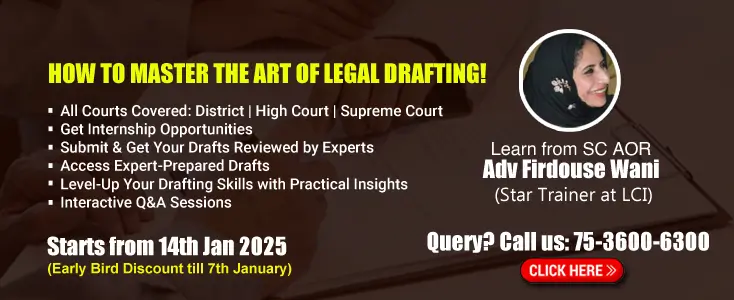N.K.Assumi (Advocate) 06 May 2009

Prakash Yedhula (Lawyer) 06 May 2009
The Bar Council of India, pursuant to its functions mentioned under Section 7(1)(b) of the Advocates Act read with its powers to make rules under Section 49(1)(c) has framed Rule 36 of the Bar Council of India Rules under Section IV(Duty to Colleagues) of Chapter II(Standards of Professional Conduct and Etiquette) of Part IV(Rules Governing Advocates). Rule 36 reads as under:
“An advocate shall not solicit work or advertise, either directly or indirectly, whether by circulars, advertisements, touts, personal communications, interviews not warranted by personal relations, furnishing or inspiring newspaper comments or producing his photographs to be published in connection with cases in which he has been engaged or concerned. His sign-board or name-plate should be of a reasonable size. The sign-board or name-plate or stationery should not indicate that he is or has been President or Member of a Bar Council or of any Association or that he has been associated with any person or organisation or with any particular cause or matter or that he specialises in any particular type of worker or that he has been a Judge or an Advocate General.”
Thus, it is against an advocate’s code of ethics to solicit or advertise work and amounts to a misconduct on the part of the advocate. Both direct and indirect advertising is prohibited. An advocate may not advertise his services through circulars, advertisements, touts, personal communication or interviews not warranted by personal relations. Similarly, the following forms of indirect advertising are prohibited:
i. by issuing circulars or election manifestos by a lawyer with his name, profession and address printed on the manifestos, thereby appealing to the members of the profession practising in the lower courts who are in a position to recommend clients to counsel practising in the high court
ii. canvassing for votes by touring in the province or sending out his clerk or agents to the various districts, which must necessarily mean directly approaching advocates practising in subordinate courts.
Further, the signboard or nameplate displayed by an advocate should be of a reasonable size. It should not refer to details of an affiliated by the advocate i.e. that he is or has been president or member of a bar council or of any association, or he has been a Judge or an Advocate-General, or that he specialises in a particular kind of work, or that he is or was associated with any person or organisation or with any particular cause or matter.
Swami Sadashiva Brahmendra Sar (Nil) 06 May 2009
Thank you mr assumi and mr y prakash for raising a topic for public spirited lawyers. i think, a lawyer's firm or legal aid committee/society can put up a board as advised by mr. assumi.
N.K.Assumi (Advocate) 07 May 2009
I agreed with Prakash, but I am also of the view like Dr.Tripathi, that there has to be an exception under section 49 of the Advocates Act, otherwise how can we tackle these problems which are the root cause of all evils in the society. Indian people are only of the view that litigation is very expensive: if that is so what about medical expenses which in most cases the patients spend more due to wroung medical informations. Lawyers mistake result in 3 feet above the grounds and medical mistake is 6 feet under the grounds. But, lawyer mistake can be ractified but not the medical mistakes. Time has come to give a serious thoughts on this matter.
A. A. JOSE (LAWYER; LEGAL ADVISER/CONSULTANT& TRAINER) 06 September 2011
No doubt, Rule 36 of the Bar Council Rules is there. But, how many of the Lawyers can frankly and truthfully claim that they are strictly adhering to the aforesaid rules please. I am of the view that if the Bar Council is serious enough to strictly implement the said Rule in its letter and spirt, perhaps, most of the Lawyers will be at the receiving end, as the Rule is often violated by majority of the Lawyers in one or the other way. It is, therefore, felt that the Bar Council should review this draconian Rule to make it more practicable than merely keeping the same in the statute book for the sake of convenient pick and choose as and when some Lawyer is to be targetted.
